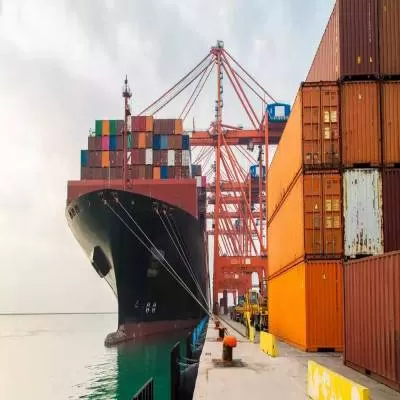Tags :
Schedule a Call Back
 The Ministry of Ports, Shipping and Waterways has sought the Finance Ministry's support to eliminate the 5% Integrated Goods and Services Tax (IGST) on ships imported and registered under the Indian flag. The move aims to boost local tonnage but has sparked resistance from the domestic shipbuilding industry, which views the levy as crucial for its protection.
Domestic shipbuilders argue that the IGST discourages the import of foreign-built ships by making them slightly more expensive, thus incentivising the use of locally manufactured vessels. A shipyard executive emphasised that the tax supports domestic shipbuilders and aligns with government initiatives like 'Make in India' and the Maritime India Vision 2030.
However, the Ministry justifies its demand by highlighting the challenges faced by Indian fleet owners. Imported ships, especially second-hand vessels, dominate the Indian market due to immediate demand and cost considerations. The IGST, the Ministry contends, imposes a cash flow burden on shipowners, with unutilised GST credits worth approximately Rs 1 billion lying interest-free with the government.
The Ministry further argues that the IGST creates a competitive disadvantage for Indian ships against foreign-owned vessels, which operate in Indian waters without such levies. It claims this imbalance discourages the registration of new-build ships under the Indian flag, with nearly no such registrations in the past decade.
Shipbuilders counter that removing the IGST would make imported ships cheaper, potentially harming the local industry. They assert that the tax enables them to claim input tax credits, reducing production costs and maintaining competitiveness. Without it, shipbuilders would face higher costs, impacting their working capital and making Indian-built ships less competitive.
The debate also touches on India's commitment to green shipping. Critics of the IGST waiver highlight the reliance on older, less efficient second-hand ships, which contradicts global trends toward fuel efficiency and carbon reduction.
As the Ministry urges the Finance Ministry to present the matter to the GST Council, the outcome will likely influence India's maritime industry dynamics, balancing fleet expansion, domestic manufacturing, and sustainability goals.
(ET)
The Ministry of Ports, Shipping and Waterways has sought the Finance Ministry's support to eliminate the 5% Integrated Goods and Services Tax (IGST) on ships imported and registered under the Indian flag. The move aims to boost local tonnage but has sparked resistance from the domestic shipbuilding industry, which views the levy as crucial for its protection.
Domestic shipbuilders argue that the IGST discourages the import of foreign-built ships by making them slightly more expensive, thus incentivising the use of locally manufactured vessels. A shipyard executive emphasised that the tax supports domestic shipbuilders and aligns with government initiatives like 'Make in India' and the Maritime India Vision 2030.
However, the Ministry justifies its demand by highlighting the challenges faced by Indian fleet owners. Imported ships, especially second-hand vessels, dominate the Indian market due to immediate demand and cost considerations. The IGST, the Ministry contends, imposes a cash flow burden on shipowners, with unutilised GST credits worth approximately Rs 1 billion lying interest-free with the government.
The Ministry further argues that the IGST creates a competitive disadvantage for Indian ships against foreign-owned vessels, which operate in Indian waters without such levies. It claims this imbalance discourages the registration of new-build ships under the Indian flag, with nearly no such registrations in the past decade.
Shipbuilders counter that removing the IGST would make imported ships cheaper, potentially harming the local industry. They assert that the tax enables them to claim input tax credits, reducing production costs and maintaining competitiveness. Without it, shipbuilders would face higher costs, impacting their working capital and making Indian-built ships less competitive.
The debate also touches on India's commitment to green shipping. Critics of the IGST waiver highlight the reliance on older, less efficient second-hand ships, which contradicts global trends toward fuel efficiency and carbon reduction.
As the Ministry urges the Finance Ministry to present the matter to the GST Council, the outcome will likely influence India's maritime industry dynamics, balancing fleet expansion, domestic manufacturing, and sustainability goals.
(ET)


Subscribe to our Newsletter & Stay updated
Talwandi Sabo Power (TSPL), Punjab’s largest and North India’s largest private thermal power plant, organised a Mega Health Camp at Village R...